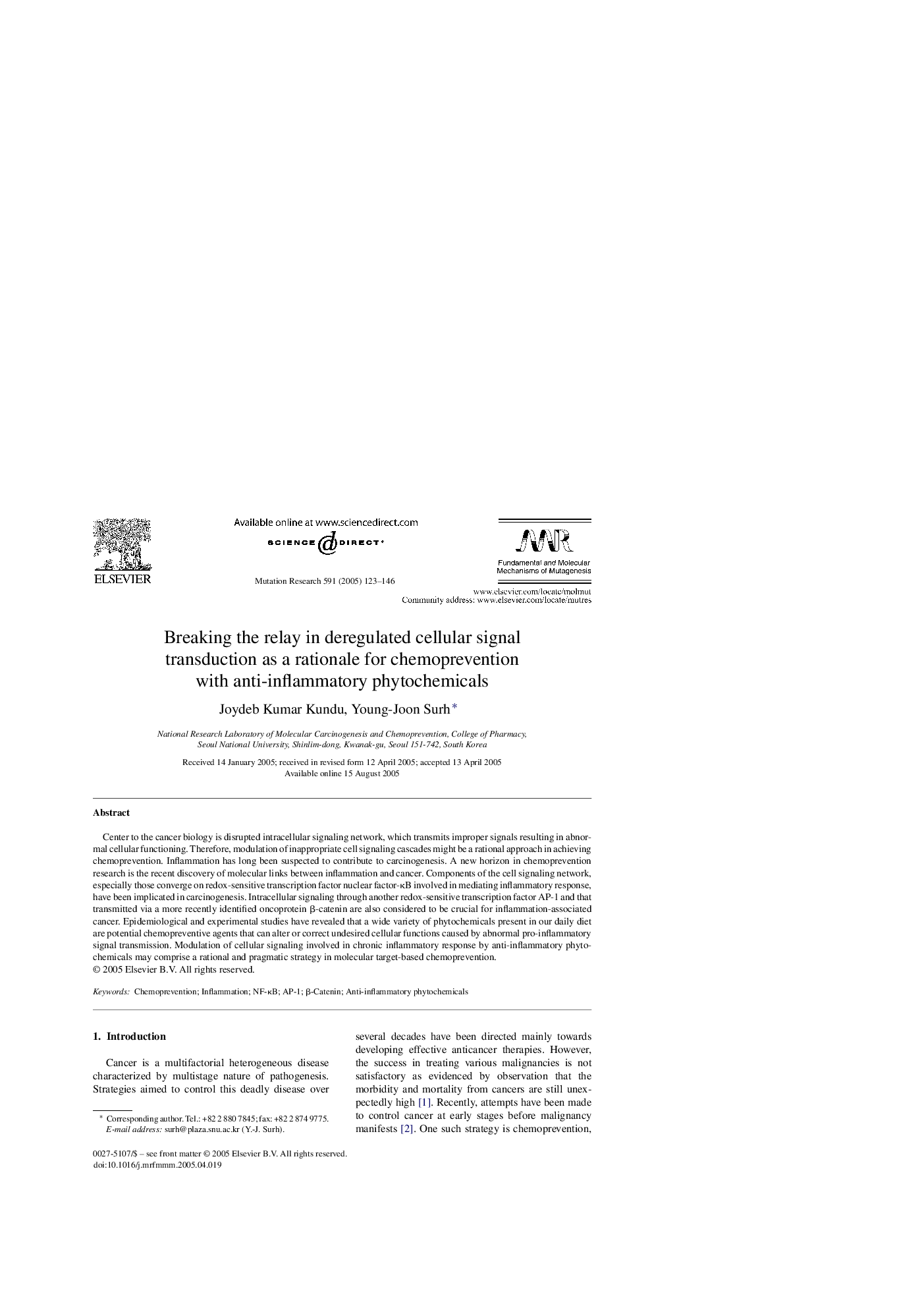| Article ID | Journal | Published Year | Pages | File Type |
|---|---|---|---|---|
| 9908967 | Mutation Research/Fundamental and Molecular Mechanisms of Mutagenesis | 2005 | 24 Pages |
Abstract
Center to the cancer biology is disrupted intracellular signaling network, which transmits improper signals resulting in abnormal cellular functioning. Therefore, modulation of inappropriate cell signaling cascades might be a rational approach in achieving chemoprevention. Inflammation has long been suspected to contribute to carcinogenesis. A new horizon in chemoprevention research is the recent discovery of molecular links between inflammation and cancer. Components of the cell signaling network, especially those converge on redox-sensitive transcription factor nuclear factor-κB involved in mediating inflammatory response, have been implicated in carcinogenesis. Intracellular signaling through another redox-sensitive transcription factor AP-1 and that transmitted via a more recently identified oncoprotein β-catenin are also considered to be crucial for inflammation-associated cancer. Epidemiological and experimental studies have revealed that a wide variety of phytochemicals present in our daily diet are potential chemopreventive agents that can alter or correct undesired cellular functions caused by abnormal pro-inflammatory signal transmission. Modulation of cellular signaling involved in chronic inflammatory response by anti-inflammatory phytochemicals may comprise a rational and pragmatic strategy in molecular target-based chemoprevention.
Related Topics
Life Sciences
Biochemistry, Genetics and Molecular Biology
Cancer Research
Authors
Joydeb Kumar Kundu, Young-Joon Surh,
